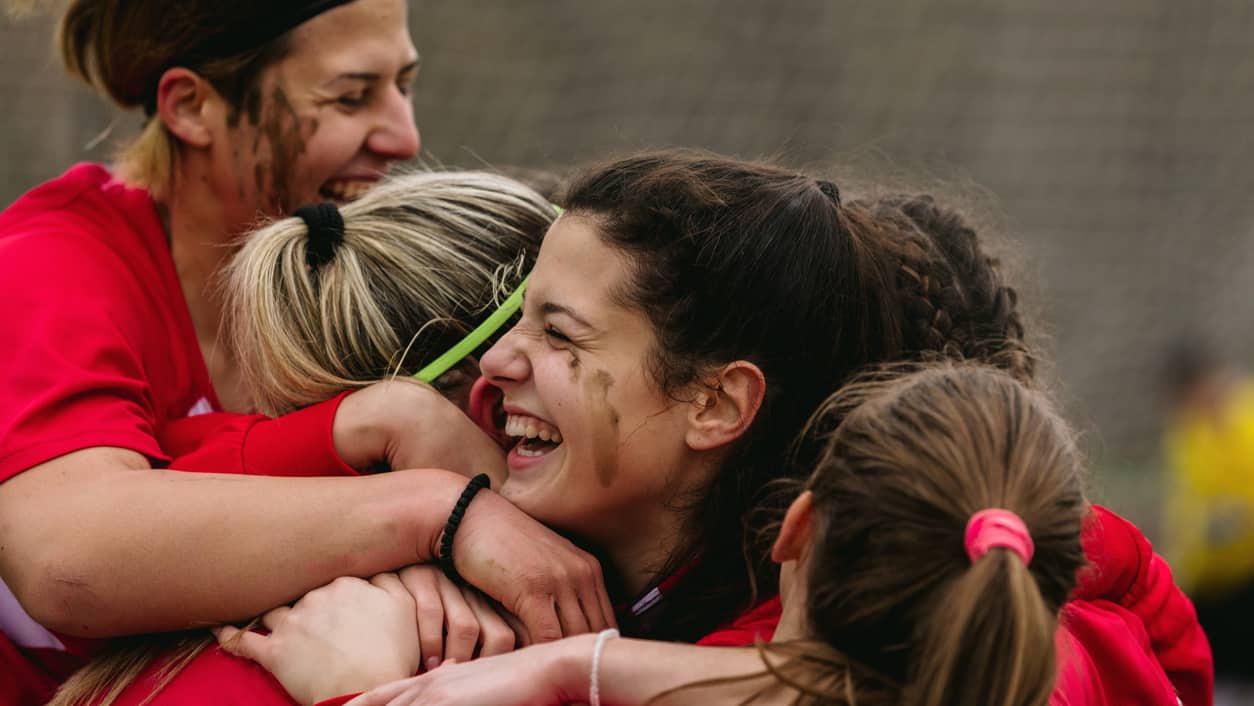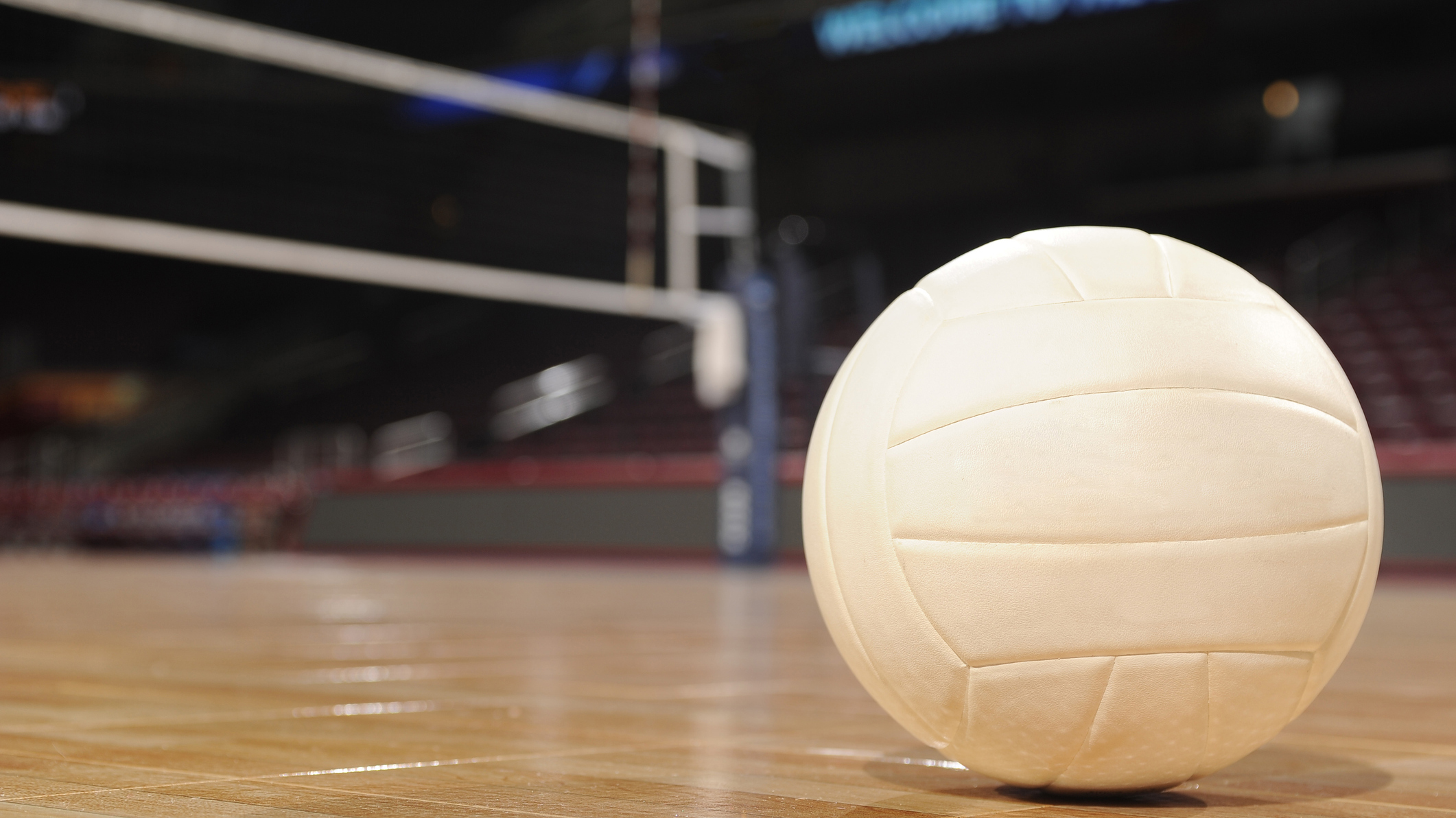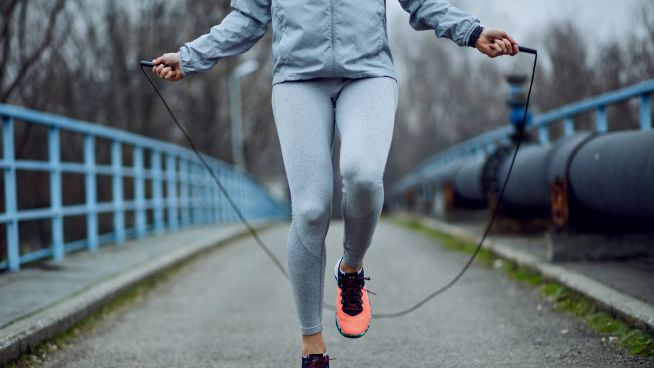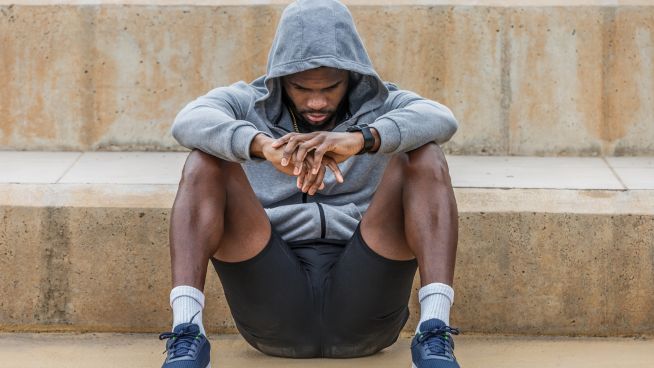"Fries With That Cold, Raw Steak?" Lessons from the Rêve Tour
Rêve 2012’s Kate Powlison, Kristen Peterson, Heidi Swift, Jennifer Cree, Kym Fant and Maria del Pilar Vazquez are some pretty amazing female athletes. As STACK reported earlier, these women made Tour de France history as the first female team to finish the entire 2,200-mile race. A feat like that doesn’t come without valuable lessons learned.
Although we took away the usual motivating messages, like “always believe in yourself,” from our conversation, the Rêve team surprised us with some of the things they learned on the grueling European mountains.
Your Body Can Adapt
STACK preaches the benefits of a healthy diet and lifestyle, but let’s face it: you’re not always going to be able to make nutritionally sound choices. Sometimes it’s going to come down to picking between the cheeseburger and the hot dog. Still, you wouldn’t think that the world’s most elite cyclists would face that kind of a choice during the Tour de France.
“Our nutrition was definitely an issue,” says Peterson. “We knew we’d have to make changes and eat differently, since we were in a completely different culture and environment. What we didn’t expect was the quality of the food to be so poor. The ride food we were originally supplied with consisted of a variety of cereal bars, candy bars, potato chips and soda. And for the first few days, that was awesome.”
It wasn’t just the snacks that were terrible though. Meals were tough too.
“It was amazing what our bodies accomplished with the food we were served,” says Fant,” One night we were served cold raw steak straight out of the fridge, with fries. We ate a lot of white bread and had to eat what we were served. We did not have the ability to go shopping or order off a menu. So you ate what your body wasn’t used to, but it still performed.”
So what can you do in similar situations? Trust your body and your training, and get resourceful when possible.
“As the days got longer, we began to realize we needed better food to keep us fueled for the big mountain stages coming up,” says Peterson, “It was a constant struggle to find real food, and we became quite the little thieves at breakfast, stealing bread and cheese to make sandwiches for our rides. Despite our lack of wholesome foods on the bike, we made it, and I think that shows our focus and determination to finish no matter what.”
Check out STACK Expert Kait Fortunato’s Guide to Eating Healthy in College for some ideas for eating healthy in tough circumstances.
You Can Find Strength in Unusual Places
Inspiration comes in all shapes and sizes. You don’t always need a motivating “Rudy-esque” success story to spur you on.
“I turned off my thoughts and emotions and found my happy place wherever I could. I often found myself behind a Belgian couple on a tandem,” says Cree, “They felt safe to me; their moves were calculated and thoughtful. They took care of each other. It helped with turning off all sabotaging thoughts.”
Training Is Not Always What You Need
When getting ready for an event, athletes tend to prep hard with intense workouts. Although devoting huge amounts of time to training before competitions seems like a safe bet, it’s not always what you need.
“I really stressed out about making sure I did all my training rides, which sacrificed time with family and friends,” says Fant, “I knew I was training more than others do, and I probably shouldn’t have stressed so much and had a little more fun during my training.”
Breaking from training before an event isn’t always a bad thing, either. It can save you from overdoing it.
“I rested a lot, especially going into the event,” says Peterson. “I knew I needed to be mentally rested and ready to take on the next 3 weeks. Resting is so often overlooked, but can be the key to your success.”
RECOMMENDED FOR YOU
MOST POPULAR
"Fries With That Cold, Raw Steak?" Lessons from the Rêve Tour
Rêve 2012’s Kate Powlison, Kristen Peterson, Heidi Swift, Jennifer Cree, Kym Fant and Maria del Pilar Vazquez are some pretty amazing female athletes. As STACK reported earlier, these women made Tour de France history as the first female team to finish the entire 2,200-mile race. A feat like that doesn’t come without valuable lessons learned.
Although we took away the usual motivating messages, like “always believe in yourself,” from our conversation, the Rêve team surprised us with some of the things they learned on the grueling European mountains.
Your Body Can Adapt
STACK preaches the benefits of a healthy diet and lifestyle, but let’s face it: you’re not always going to be able to make nutritionally sound choices. Sometimes it’s going to come down to picking between the cheeseburger and the hot dog. Still, you wouldn’t think that the world’s most elite cyclists would face that kind of a choice during the Tour de France.
“Our nutrition was definitely an issue,” says Peterson. “We knew we’d have to make changes and eat differently, since we were in a completely different culture and environment. What we didn’t expect was the quality of the food to be so poor. The ride food we were originally supplied with consisted of a variety of cereal bars, candy bars, potato chips and soda. And for the first few days, that was awesome.”
It wasn’t just the snacks that were terrible though. Meals were tough too.
“It was amazing what our bodies accomplished with the food we were served,” says Fant,” One night we were served cold raw steak straight out of the fridge, with fries. We ate a lot of white bread and had to eat what we were served. We did not have the ability to go shopping or order off a menu. So you ate what your body wasn’t used to, but it still performed.”
So what can you do in similar situations? Trust your body and your training, and get resourceful when possible.
“As the days got longer, we began to realize we needed better food to keep us fueled for the big mountain stages coming up,” says Peterson, “It was a constant struggle to find real food, and we became quite the little thieves at breakfast, stealing bread and cheese to make sandwiches for our rides. Despite our lack of wholesome foods on the bike, we made it, and I think that shows our focus and determination to finish no matter what.”
Check out STACK Expert Kait Fortunato’s Guide to Eating Healthy in College for some ideas for eating healthy in tough circumstances.
You Can Find Strength in Unusual Places
Inspiration comes in all shapes and sizes. You don’t always need a motivating “Rudy-esque” success story to spur you on.
“I turned off my thoughts and emotions and found my happy place wherever I could. I often found myself behind a Belgian couple on a tandem,” says Cree, “They felt safe to me; their moves were calculated and thoughtful. They took care of each other. It helped with turning off all sabotaging thoughts.”
Training Is Not Always What You Need
When getting ready for an event, athletes tend to prep hard with intense workouts. Although devoting huge amounts of time to training before competitions seems like a safe bet, it’s not always what you need.
“I really stressed out about making sure I did all my training rides, which sacrificed time with family and friends,” says Fant, “I knew I was training more than others do, and I probably shouldn’t have stressed so much and had a little more fun during my training.”
Breaking from training before an event isn’t always a bad thing, either. It can save you from overdoing it.
“I rested a lot, especially going into the event,” says Peterson. “I knew I needed to be mentally rested and ready to take on the next 3 weeks. Resting is so often overlooked, but can be the key to your success.”













